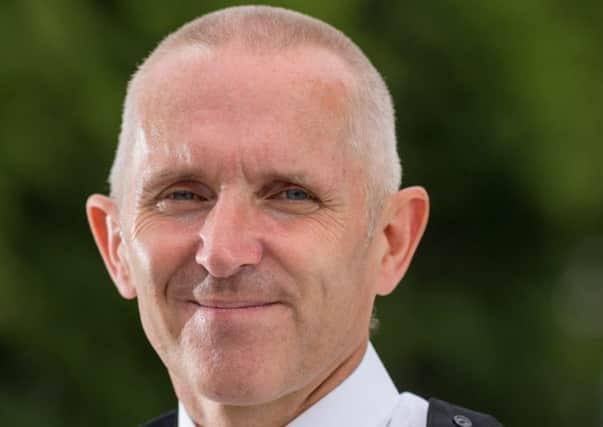How a '˜mini breakdown' inspired this Leeds officer to become Blue Light Champion at West Yorkshire Police


But when a police colleague was shot, prioritising the wellbeing of his Leeds patrol team and dealing with his wife’s own mental health illness ended with him suffering what he describes a “mini breakdown”.
Now, inspired by his own experience, he is at the forefront of work taking place within West Yorkshire Police to ensure all officers and staff feel able to ask for help when they need it.
Advertisement
Hide AdAdvertisement
Hide Ad“Five years ago my partner was diagnosed with bipolar shortly after my little boy was born,” John said. “It started to have a massive effect on my family and still does.
“In 2013, one of my officers got shot. We didn’t know if she was going to pull through. She was off work for a year.
“It had a massive impact on my team. However, what I wasn’t doing was looking after myself. That combined with everything going on with my partner’s bipolar in my personal life, and I had what I’d have to refer to as a mini breakdown.”
After time off with stress, John returned to work and found some colleagues did not know what to say.
Advertisement
Hide AdAdvertisement
Hide AdIt led him to attend a seminar hosted by Leeds Mind where he learned about its Blue Light Programme for people working in the emergency services.
He said: “For me it wasn’t anything new because of everything I had been going through, but it was the first time for a lot of people in the room and they didn’t get it.”
Spurred on by this realisation, he won the backing of senior officers to set up a peer support group in Leeds District.
Advertisement
Hide AdAdvertisement
Hide AdJohn said: “What I wanted to do really was give our staff the confidence and the mechanisms to talk to somebody about how they were feeling.
“The idea is to be a confidential listening and signposting service, quite apart from anything the organisation already has in place.”
Whether someone was in crisis or simply having a bad day, it meant there were now a number of volunteers available.
“The whole idea is if you can catch it at a low level, it’s not necessarily going to spiral,” he said. “From a business point of view, that means we’ve got happy, motivated managers and staff who aren’t going off work through stress.”
Advertisement
Hide AdAdvertisement
Hide AdEvery supervisor in Leeds District has also taken part in training with Mind, which is now designing a programme to be rolled out as the Leeds model is adopted across the force.
Among those who got behind the idea was Chief Inspector Jackie Marsh, who chairs the Leeds District Equalities Group.
“We’ve got less resource, more demand, more pressure on people which makes it even more important to do this kind of thing,” she said.
Advertisement
Hide AdAdvertisement
Hide AdIt has, she believes, resulted in a greater willingness for officers to seek help before they need to take time off.
She said: “Here, certainly in the last 12 months, we’ve seen a reduction in police officer sickness. However, the top of the list there for cause of people being off is depression, mental health and the stress-related issues.
“Although we might say mental health is top of the list, we like to think this is because people are more open now. It’s a great thing because that means we can pick it up early, we can get the support in.”
The work in Leeds has also coincided with what she says is a “massive shift” in culture and a greater recognition that officers are not machines.
Advertisement
Hide AdAdvertisement
Hide Ad“It was just a culture that it was your job and you were expected to do it,” she said. “We would talk about the job and debrief it, but I don’t think we ever discussed how people felt.
“Now there’s more emphasis on the after-effect an incident could have on people.”